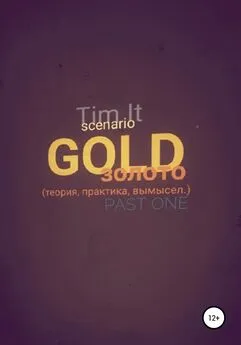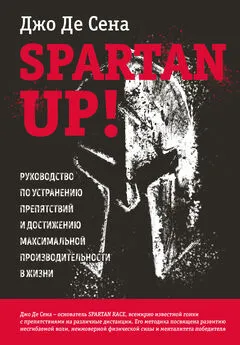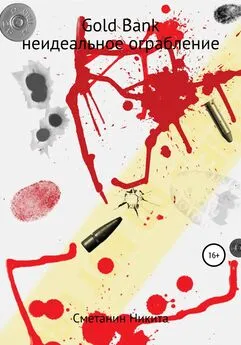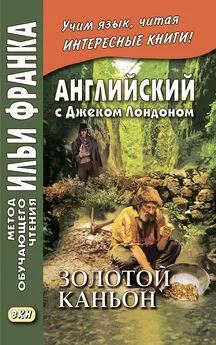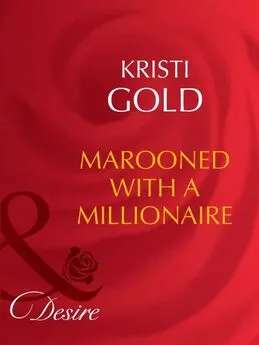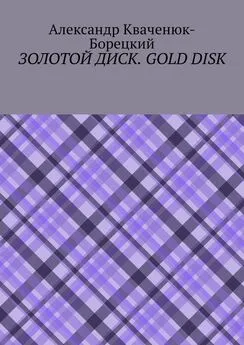Clive Cussler - Spartan Gold
- Название:Spartan Gold
- Автор:
- Жанр:
- Издательство:неизвестно
- Год:неизвестен
- ISBN:нет данных
- Рейтинг:
- Избранное:Добавить в избранное
-
Отзывы:
-
Ваша оценка:
Clive Cussler - Spartan Gold краткое содержание
The debut of a brand-new, action-packed series from the #1 New York Times bestselling master of 'pure entertainment'.
Thousands of years ago, the Persian king Xerxes the Great was said to have raided the Treasury at Delphi, carrying away two solid gold pillars as tribute. In 1800, Napoleon Bonaparte and his army stumble across the pillars in the Pennine Alps. Unable to transport them Napoleon creates a map on the labels of twelve bottles of rare wine. And when Napoleon dies, the bottles disappear.
Treasure hunters Sam and Remi Fargo are exploring the Great Pocomoke Swamp in Delaware when they are shocked to discover a World War II German u-boat. Inside, they find a bottle taken from Napoleon's 'lost cellar.' Fascinated, the Fargos set out to find the rest of the collection. But another connoisseur of sorts has been looking for the bottle they've just found. He is Hadeon Bondaruk - a half- Russian, half-Persian millionaire. He claims to be a descendant of King Xerxes himself.
And he wants his treasure back.
Spartan Gold - читать онлайн бесплатно полную версию (весь текст целиком)
Интервал:
Закладка:
He nodded absently, eyes poring over the ladder. “This is ancient,” he murmured. “It could be original. This could be hundreds of years old.”
“That’s wonderful, Sam, but right now all I care about is whether it’ll take our weight.”
He gave the ladder a twist, then put his weight on the bottom rung. It creaked, but held. “Give me the pry bar, will you?”
He tucked it into his belt and climbed up to the hatch. “It’s locked,” he called down.
He wriggled the pry bar under the edge and wrenched once, then again, then once more and the latch popped open. Sam threw open the hatch. Fresh air rushed through the opening and down the ladder.
“We’re in one of the turrets,” Sam whispered down.
He boosted himself up and out, then Remi followed. As her head cleared the opening, outside the door they heard the scuff of a shoe on stone. Sam helped Remi the rest of the way out and together they crept to the door.
Over the railing they could see a guard—the one from before, they assumed—strolling across the courtyard, flashlight panning left and right. The man turned around, shined his flashlight briefly over the walkways, then disappeared through the arch.
They gave him thirty seconds to move off a safe distance, then trotted down the walkway, left down the steps, then through the courtyard and into the tunnel they’d first entered.
Outside it was still raining and the temperature had dropped twenty degrees. The cold washed over them. They looked around to get their bearings; they were back where they’d started. Ahead, across the plaza, lay the red-roofed outbuildings. His progress marked by his flashlight, the guard was a hundred yards away and heading toward the reception area.
“Had enough prowling for one night?” Sam asked Remi.
“And then some,” Remi replied. “Besides, knowing you as I do, I’m sure there’s plenty of skulking left in our future.”
“Safe bet.”
Together they stepped out into the rain.
CHAPTER 33
GRAND HÔTEL BEAUVAU
An hour later, freshly showered and enjoying their second room-service Bombay Sapphire Gibson, Sam and Remi sat on their balcony and looked out over the Vieux Port. The lights of the city reflected off the water’s surface in a mosaic of red, yellow, and blue that slowly rippled with the falling rain. In the distance they could hear the mournful howl of a foghorn, and closer in the occasional clang of a buoy.
The phone trilled. Sam checked the screen: It was Rube. As soon as they got back to the hotel he had called Haywood, given him a purposely vague recounting of the night’s events, and asked him to call back.
Sam closed the balcony door, then answered and put the phone on speaker. “Rube, please tell us Kholkov and his merry band are in custody.”
“Sorry, no. The French DCPJ can’t find them.”
“Wish I could say I was surprised.”
“Me, too. Ready to quit and come home now?
“Not on your life.”
“Remi?”
“No chance.”
“Well, on the bright side, Kholkov’s name and picture are everywhere. If he tries to leave the country through an airport, port, or train station, they’ll pick him up.”
“Then again,” Sam said, “from what you told me it sounds like the Spetsnaz are trained to slip across borders. And he doesn’t strike me as stupid enough to walk into an airport.”
“True.”
“What about Bondaruk?” Remi asked. “Any chance of digging into his family’s skeleton closet and figuring out what’s driving him?”
“Possibly. It turns out the Iranian Pasdaran colonel who was Bondaruk’s handler during the border war ran into some trouble with the Ayatollah a few years later. We’re not sure what the rigmarole was about, but the colonel—his name is Aref Ghasemi—escaped to London and started working for the British. He’s still there. I’ve got someone reaching out to him.”
“Thanks, Rube,” Remi said, and hung up.

The next morning they slept in until nine and had breakfast on the balcony. The previous night’s rain had disappeared, leaving behind a blue sky with scattered cotton-puff clouds. Over coffee they called Selma, who was awake despite it being nearly midnight in California. As far as they could tell, their chief researcher slept only five or so hours a night but never seemed the worse for it.
Leaving out the finer details, Sam told her about finding the Château d’If hiding place empty. Remi added, “The cicada was there, though, and it looked like a perfect match for Laurent’s chisel stamp.”
“That’s better than nothing,” Selma said. “I’m making some headway on deciphering lines three and four on the bottle, but as for the rest, zilch. And I think I know why: There’s a third key.”
“Explain,” Sam said.
“Laurent’s book is one key and the bottle we have is another—at least the first four lines are. I’m guessing the third key is another bottle. We need all three to cross-reference and decode the rest of the lines.”
“This feels convoluted,” Remi said.
“From our perspective, maybe, but we’ve got to make some assumptions: first, that Laurent intended to hide the twelve bottles from the original case individually, at scattered locations—his ‘arrows on a map’ to whatever’s at the end of all this.”
“We need to find a name for this thing,” Sam said.
“Napoleon’s Gold,” Remi suggested with a shrug.
“Works for me.”
Selma said, “Okay, Napoleon’s Gold. I suspect he meant it to work like this: Find one bottle, decode it with the book, then follow the riddle to another bottle—”
Sam caught on: “Then use that label’s code with the book and the first bottle to decode the next line—”
“And its riddle, which leads to yet another bottle . . . and so forth. The good news is—and this is another guess—I don’t think there’s any sequence to the code—in other words, Laurent designed it so any bottle would lead to another riddle.”
Remi said, “If all this is right, why did he hide three bottles together at d’If?”
“No idea. We might find out down the road.”
“We’re ignoring the elephant in the room,” Sam said. “We know for sure one of the bottles is lost—the shard from the Pocomoke proves that. Without that bottle, we could be missing the last riddle—the one that points us to Napoleon’s Gold.”
“I was thinking the same thing,” Remi replied. “I guess we won’t know until we reach the end.”
“Selma, what are the chances the bottle Kholkov recovered in Rum Cay is doing them any good?” Sam asked.
“Slim. Unless they have a codebook, that is. And based on how he’s been on your heels every step of the way, I’d say they’re lost.”
“Here’s elephant number two,” Remi said. “At some point we’re going to have to get our hands on the Rum Cay bottle.”
“Which means,” Sam said, “a trip into the lion’s den.”
SEVASTOPOL
Two thousand miles east of Marseille, Hadeon Bondaruk sat at his desk, hands clasped before him. Spread across the burgundy leather blotter were a dozen high-resolution color photographs, each one highlighting a separate line of symbols. For the tenth time in an hour, he picked up a lighted magnifying glass and studied each photo in turn, focusing on the minute details of every symbol—the right angle of this square, the looping curve of a truncated omega, the tilt of a crescent moon . . .
Nothing. There was nothing!
He tossed the magnifying glass across the desk then swept his arm over the surface, scattering the photos.
Despite its monetary value, alone the bottle was worthless to him, and now that the Fargos had Arnaud Laurent’s book, he had to assume they would quickly begin to unravel the code. As much as he wanted to blame Kholkov for the book’s loss, Bondaruk had to admit he’d also underestimated the Fargos. They were treasure hunters—adventurers. Neither he nor Kholkov had anticipated they would be this much trouble. Or this resourceful. Perhaps they should have foreseen this. After all, it stood to reason the Fargos’ escapades had landed them in enough dicey situations to have seasoned them.
Still, their resources couldn’t hope to match his own. On Napoleon alone he’d spent hundreds of thousands of dollars. His researchers had dissected the man’s life, from cradle to grave, had tracked down not only his every known descendant, but those of the dozens of friends and advisers and lovers Napoleon might have confided in, Arnaud Laurent included. Every book written about Napoleon had been scanned into their computer database and parsed for clues. Period artwork, from battle scenes to portraits to rough sketches, had been scoured for anything that might point the way—a symbol on a tunic button, a finger pointing at something in the background, a book on a shelf behind Napoleon’s head. . . .
And for all that, for all the money spent and time invested, he had nothing but a useless bottle of wine and a pictograph of a damned insect.
His desk phone chimed and he picked it up. “It’s me,” Vladimir Kholkov said.
“Where have you been?” Bondaruk growled. “I was expecting your call last night. Tell me what’s happening.”
“We tracked them to Marseille yesterday afternoon. I met them and proposed a truce—and a partnership.”
“You what? I didn’t tell you to do that!”
“Proposing a truce and keeping a truce are two different things, Mr. Bondaruk. At any rate, they didn’t budge.”
“Where are they now?”
“Back in Marseille.”
“Back? What does that mean?”
“I had to leave France; I’m in La Jonquera, on the other side of the Spanish border. The French police are looking for me. Someone put out a bulletin.”
“The Fargos. It has to be. How would they do that?”
“I’m looking into it. It doesn’t matter. If they leave, I’ll know it.”
“How?”
Kholkov explained, and Bondaruk said, “What about the book?”
“I had a man watching their house, but Fargo wasn’t bluffing: They’ve got security. I think it would cause more trouble than it’s worth. And since we’ll know where they’re going and when, we can let them do the hard work for us.”
“Agreed.”
Bondaruk hung up, strode to his window, and forced himself to take a calming breath. Kholkov was right: There was still time. The Fargos were ahead, but they had a long way to go and many hurdles to clear before they reached the end. Sooner or later they would make a mistake. When they did, Kholkov would be there.
CHAPTER 34
SEVASTOPOL
Sam pulled their rented Opel coupe off the dirt road and coasted to a stop a few feet from the cliff’s edge. Sunset was an hour away and the sun was already dropping toward the western horizon, cast ing the surface of the Black Sea in tones of gold and red. Directly below them the palisades of Cape Fiolent plunged directly into the blue-green water and just offshore dozens of spires of jagged rock jutted from the water, each surrounded by a whirlpool of churning surf.
In the distance, a gull cawed, then went silent, leaving only the sound of wind rushing through Sam’s open window.
“A little foreboding,” Remi murmured.
“Just a tad,” Sam agreed. “Then again, it does suit his reputation.”
The “he” in question was Hadeon Bondaruk. Knowing that without another bottle with which to complete the next lines of the cipher, Sam and Remi had chosen the only course open to them: stealing Bondaruk’s bottle.
Читать дальшеИнтервал:
Закладка:

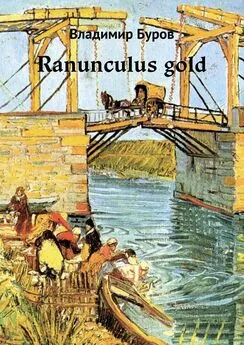
![Джо Сена+ - Spartan up! Руководство по устранению препятствий и достижению максимальной производительности в жизни [litres]](/books/1059232/dzho-sena-spartan-up-rukovodstvo-po-ustraneniyu-pr.webp)
